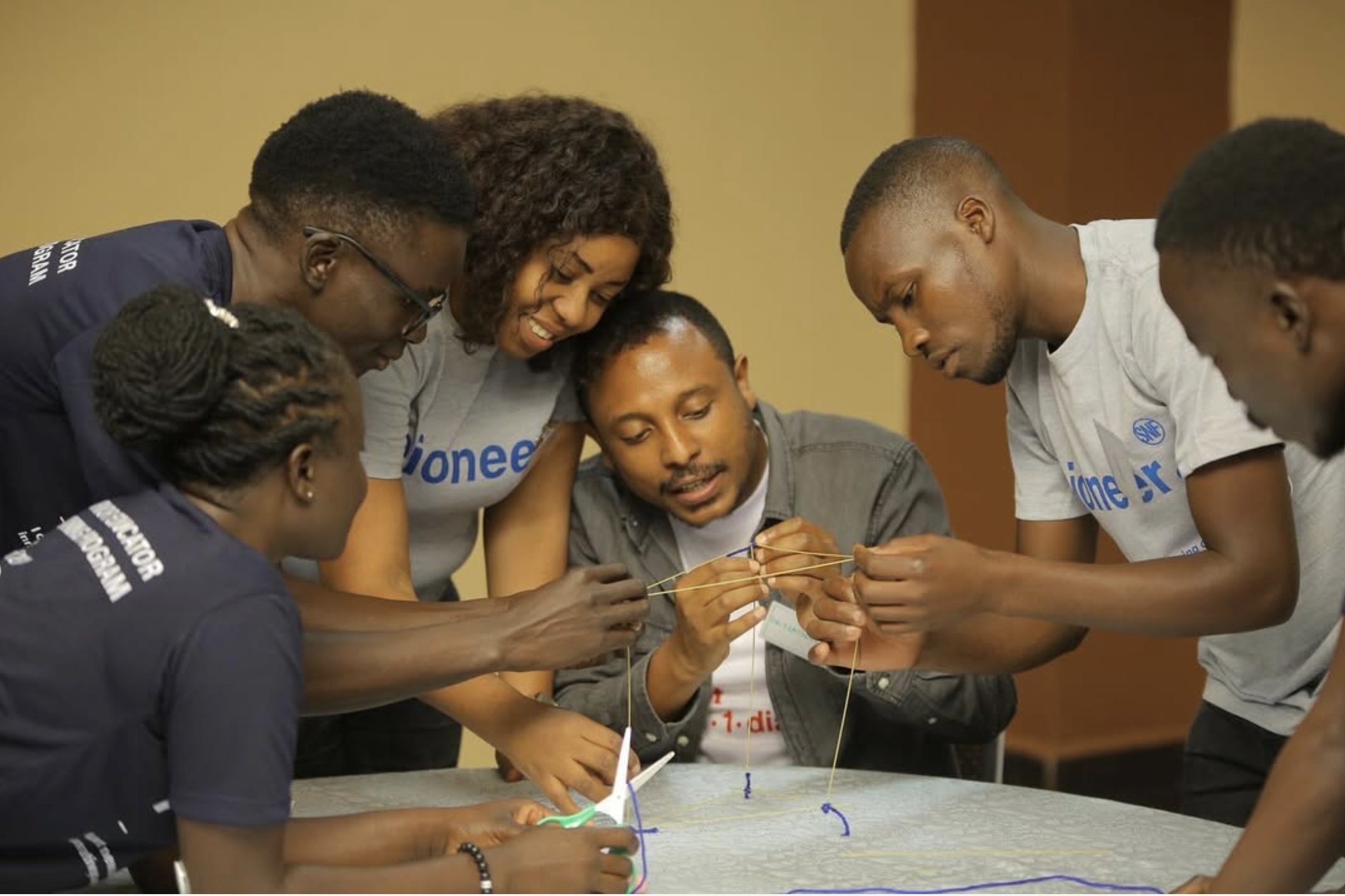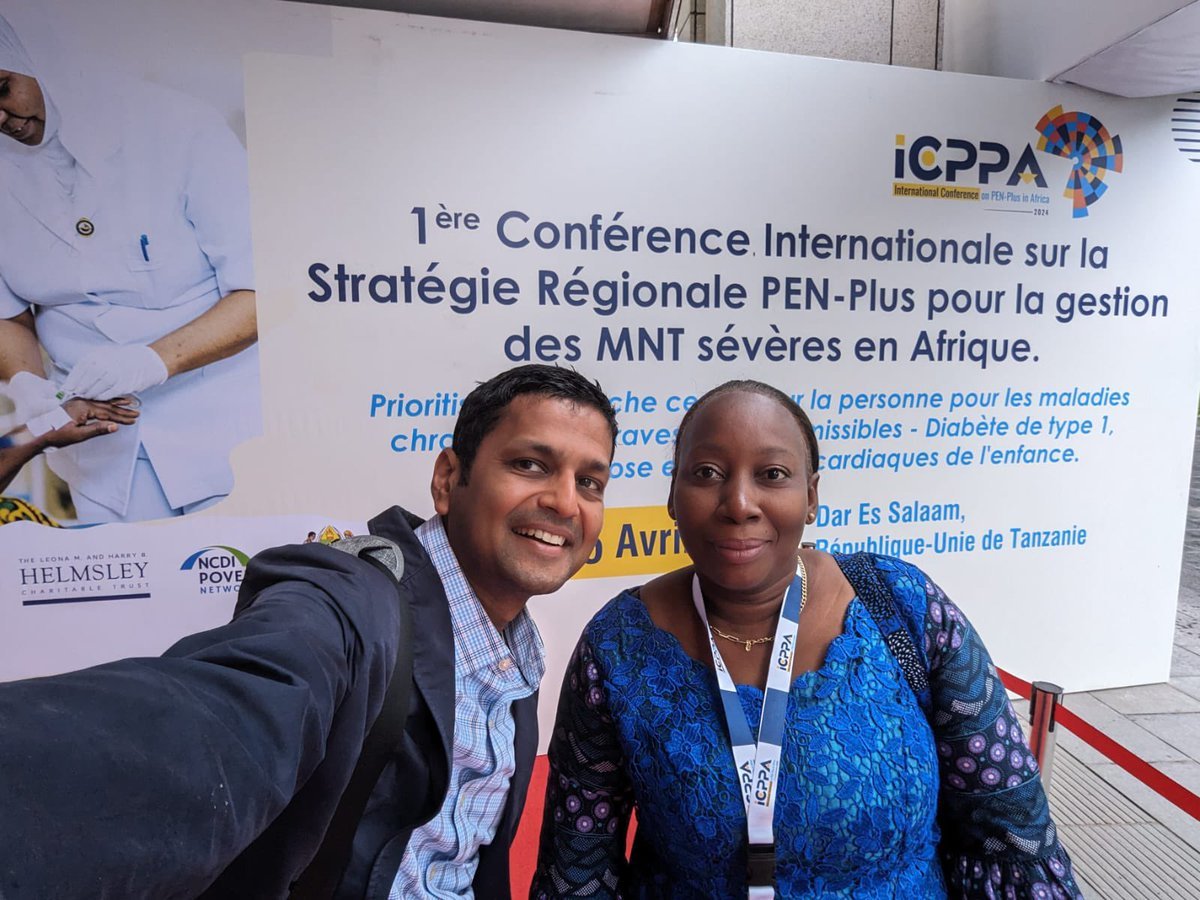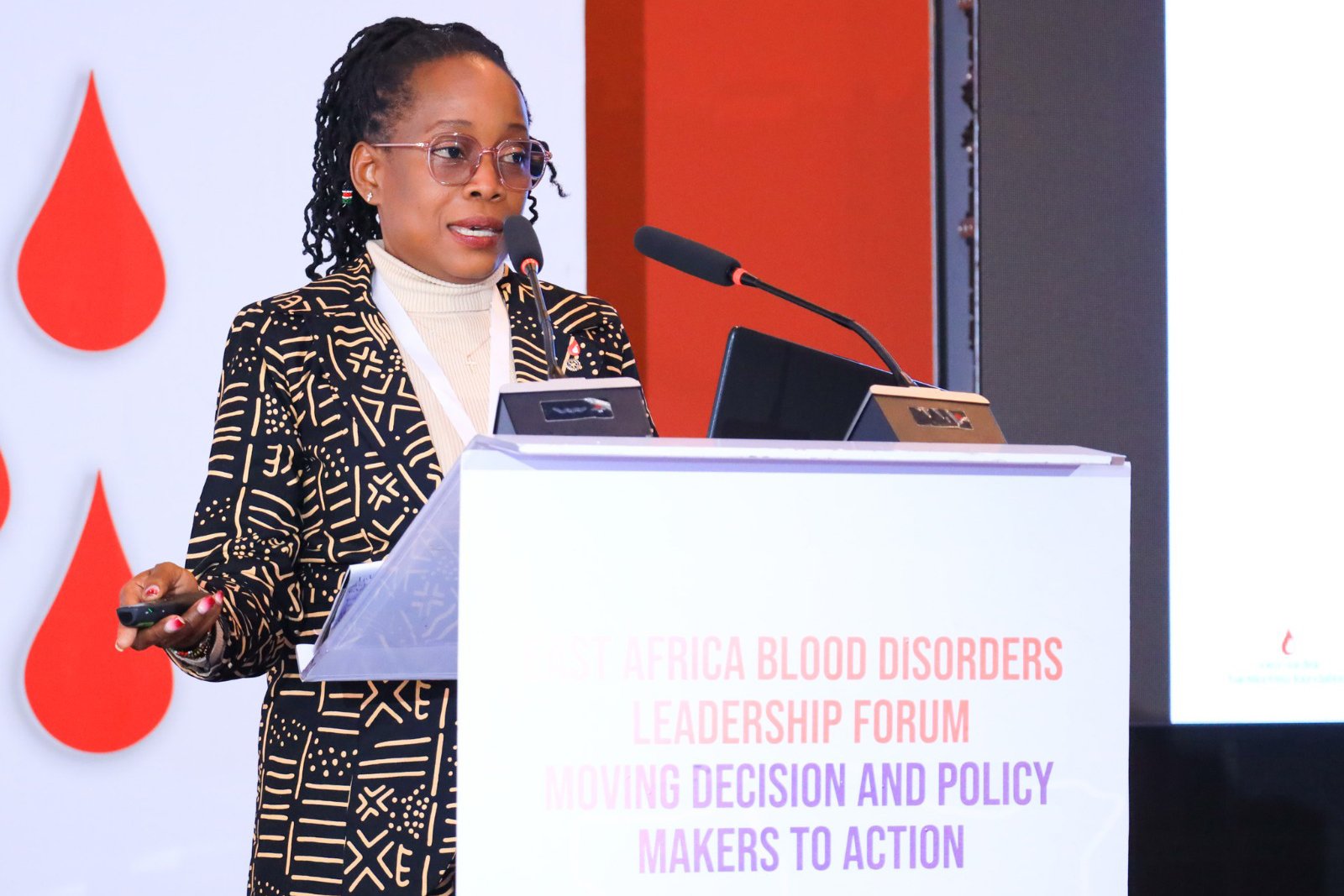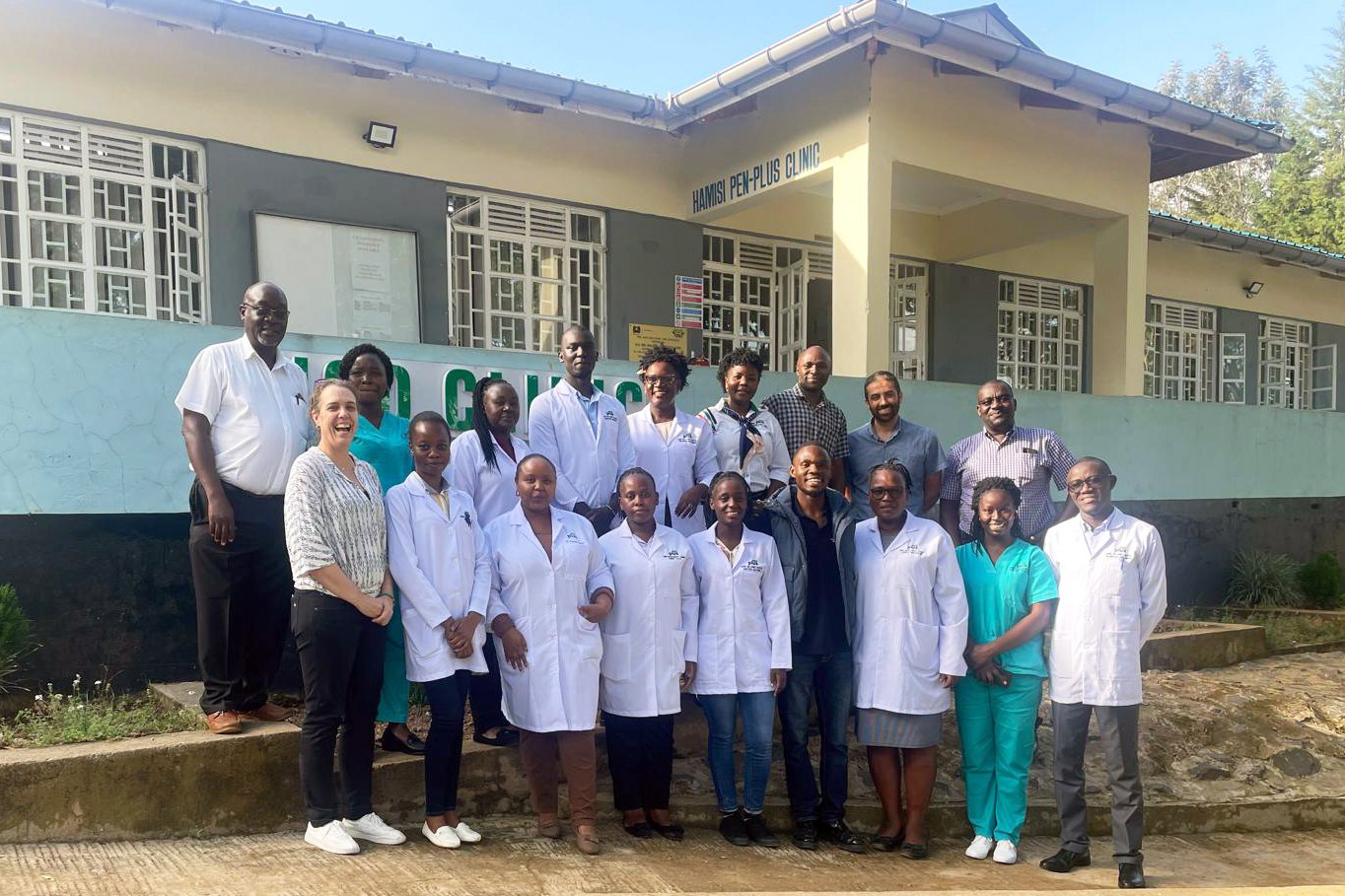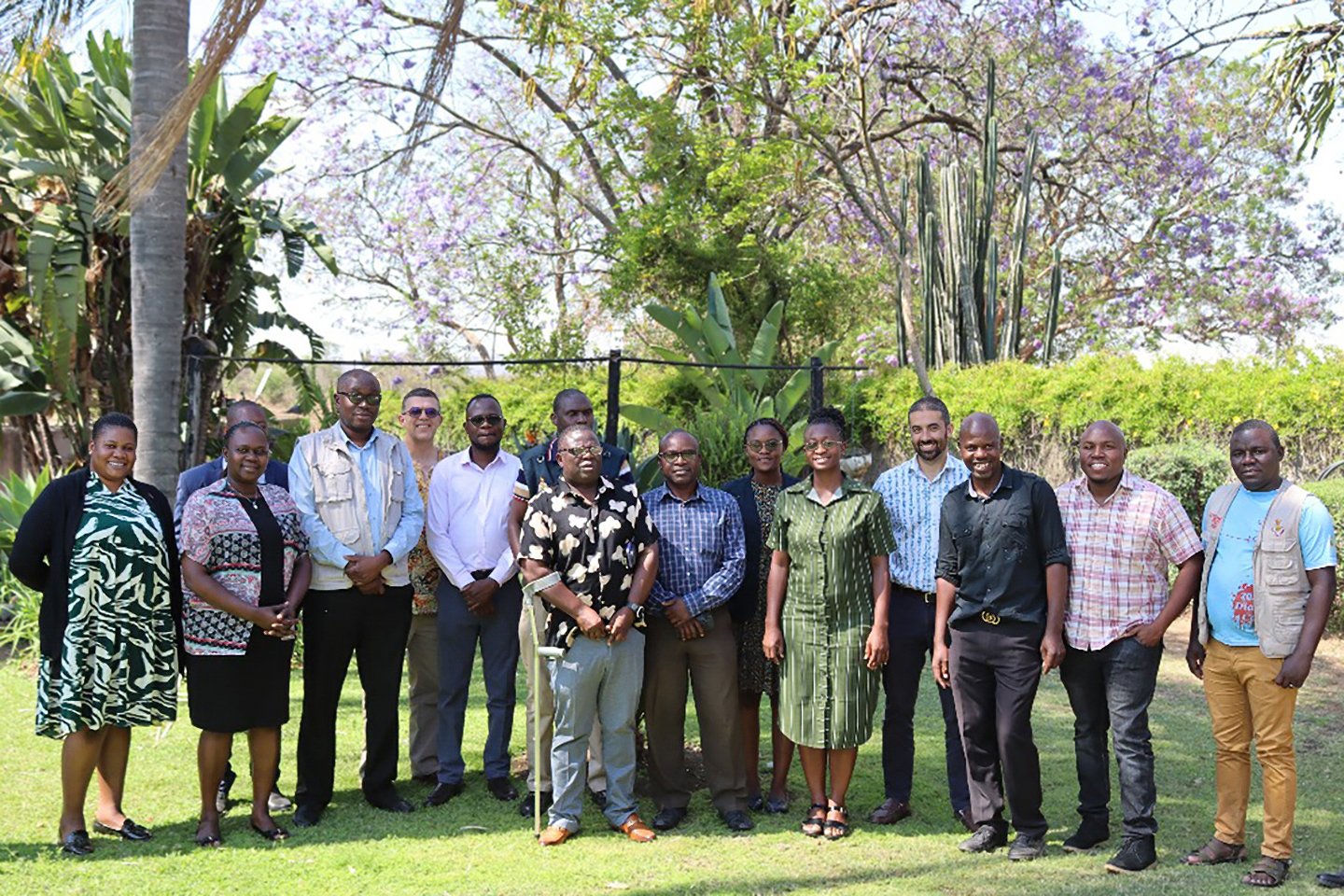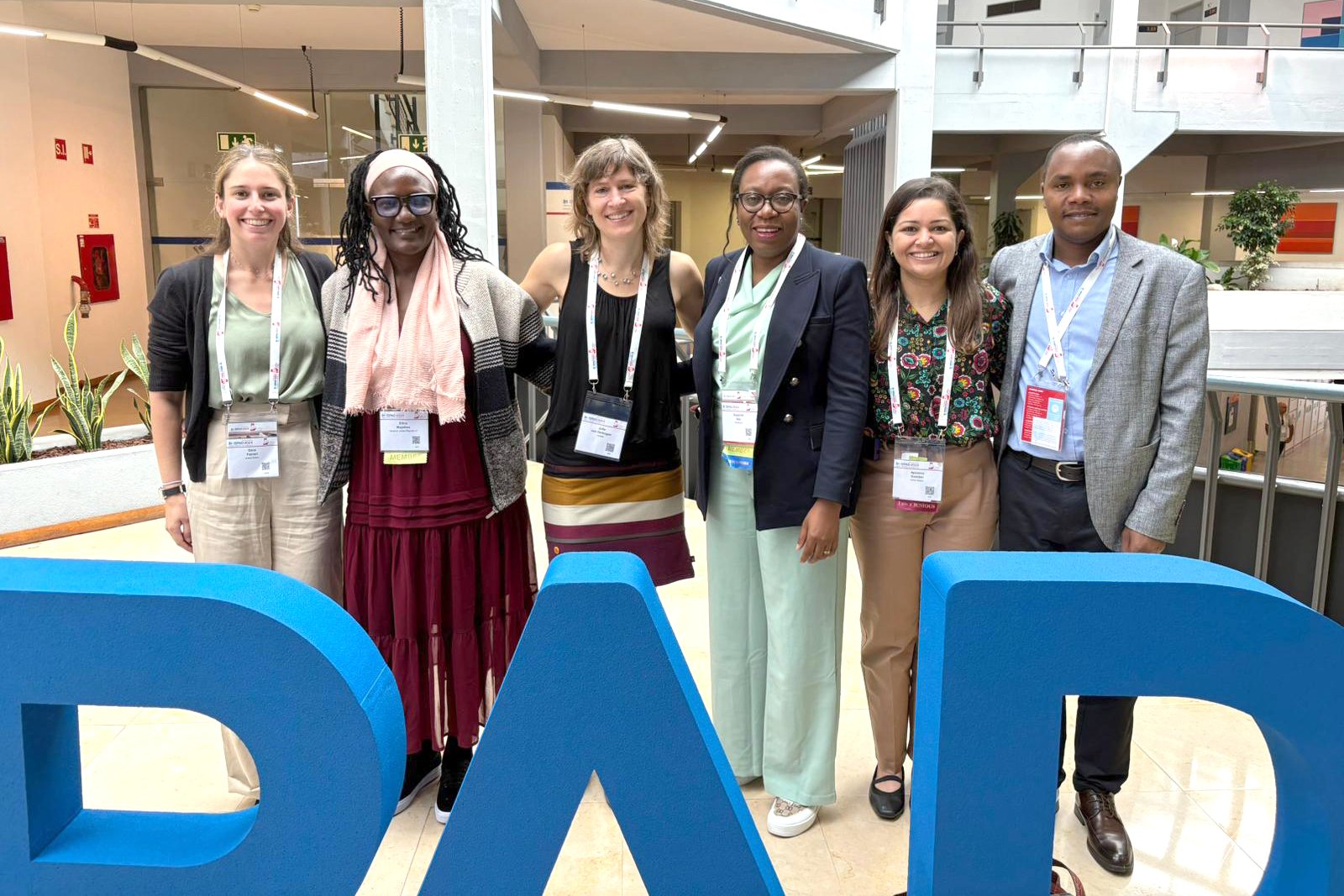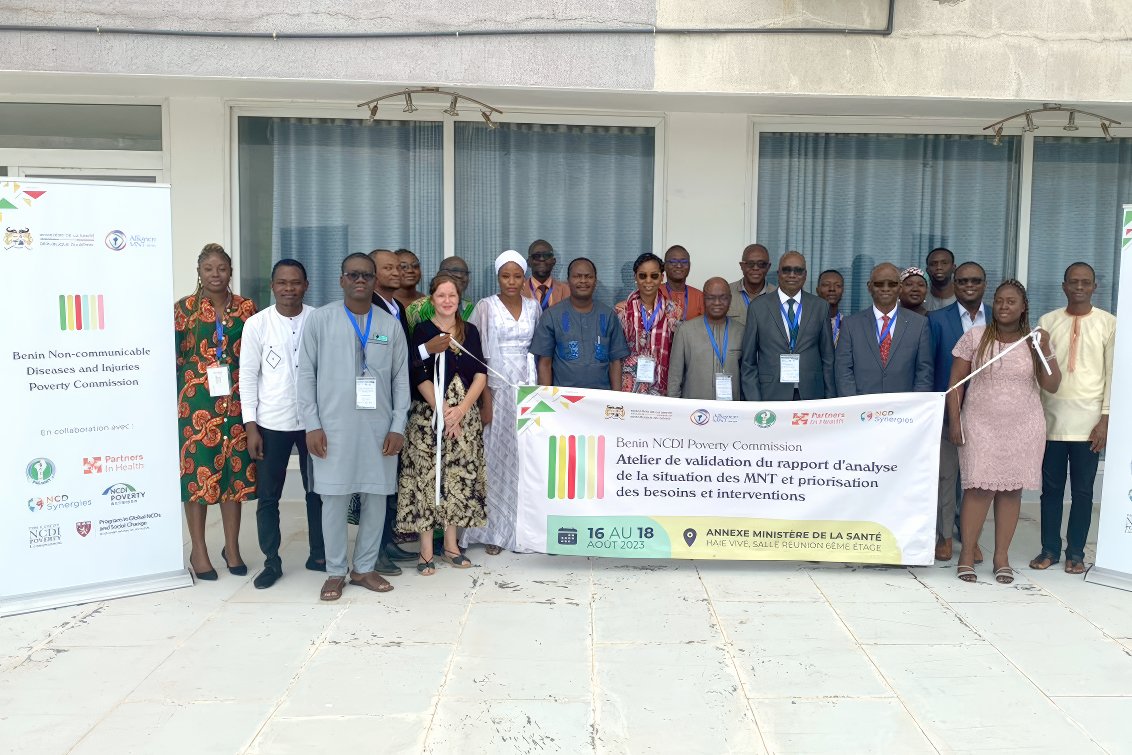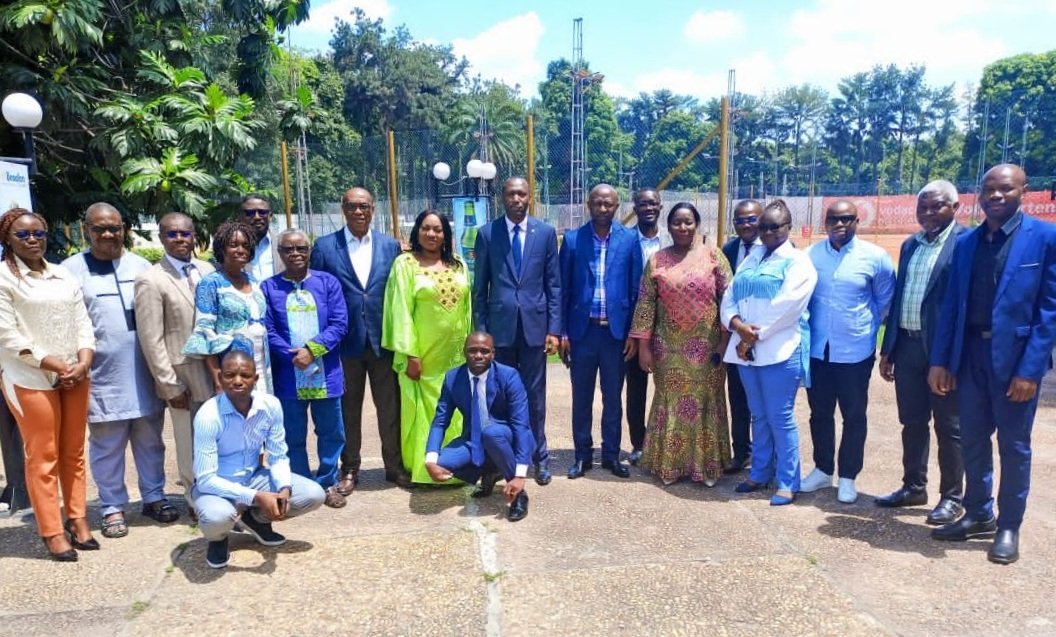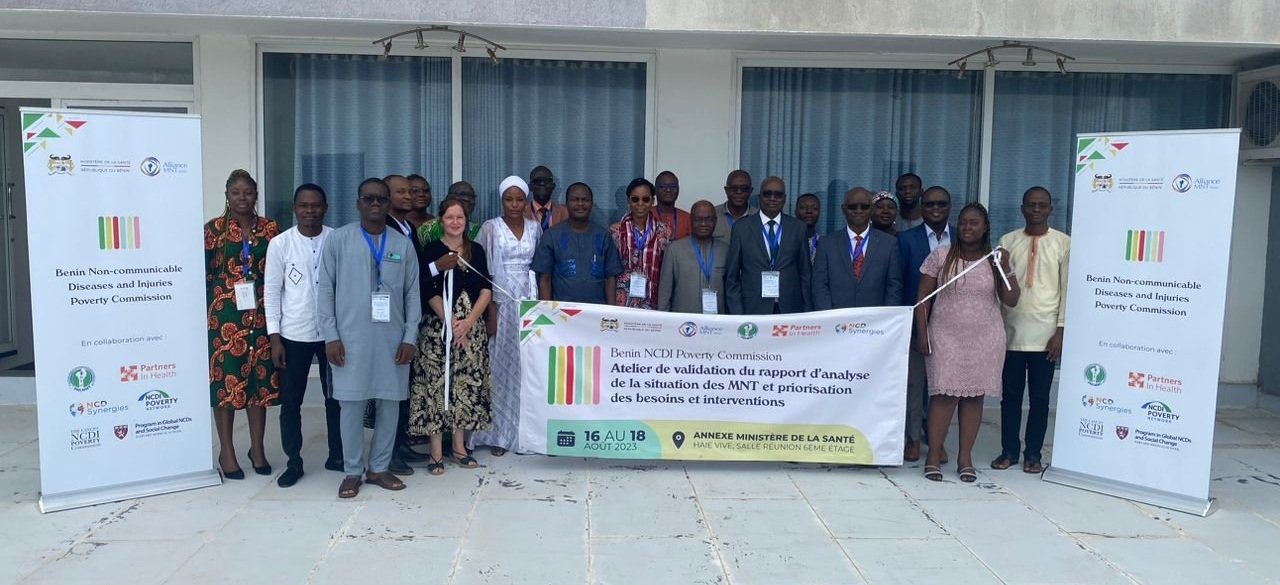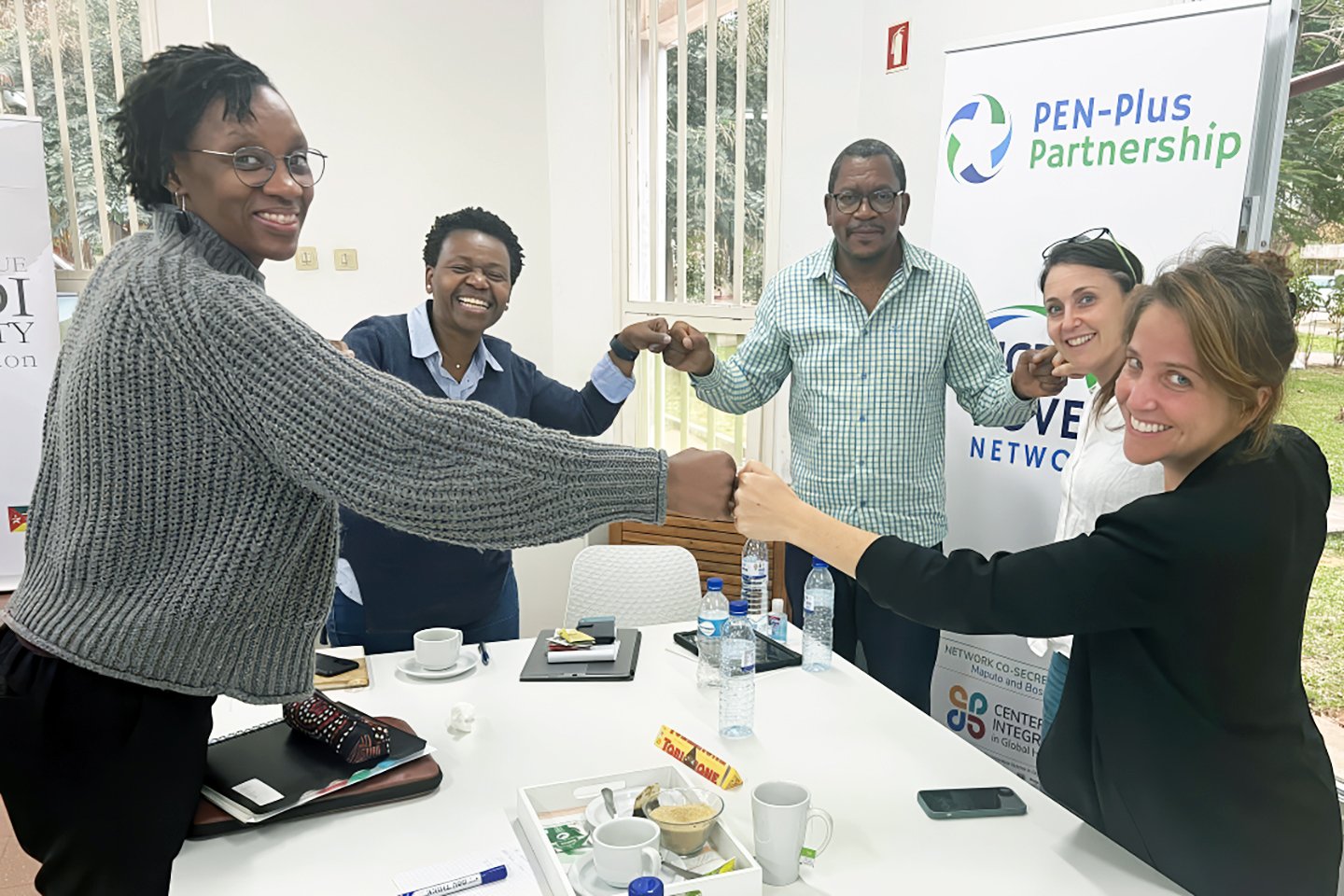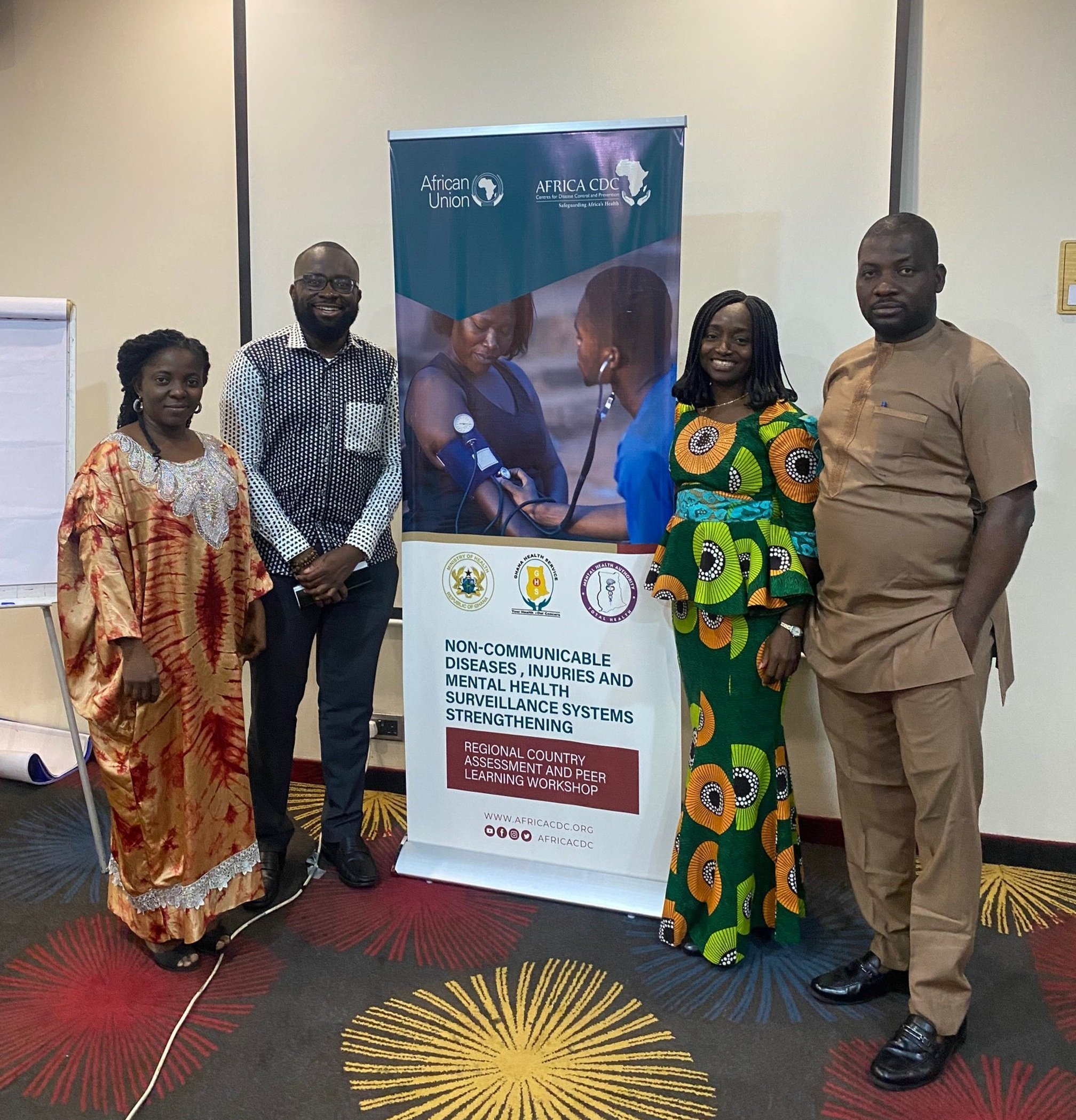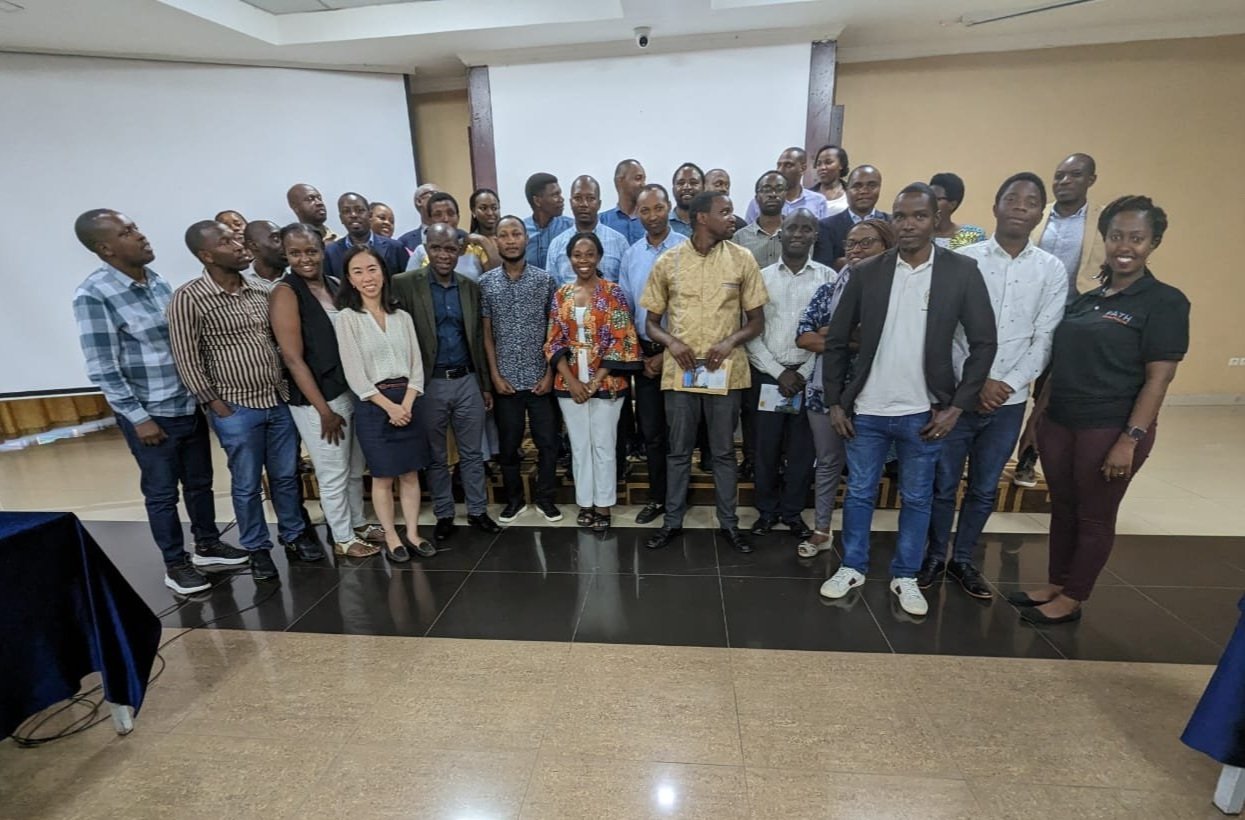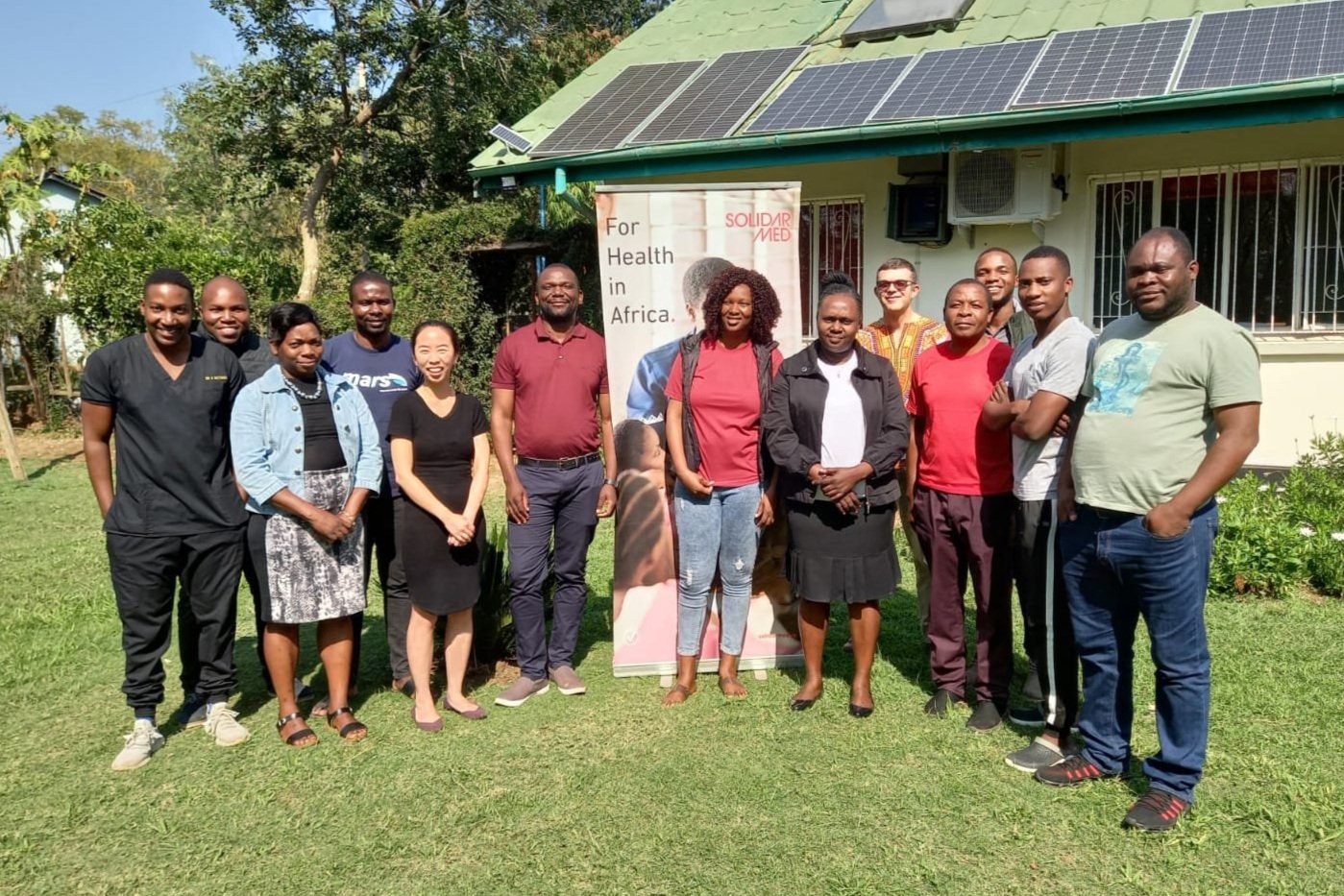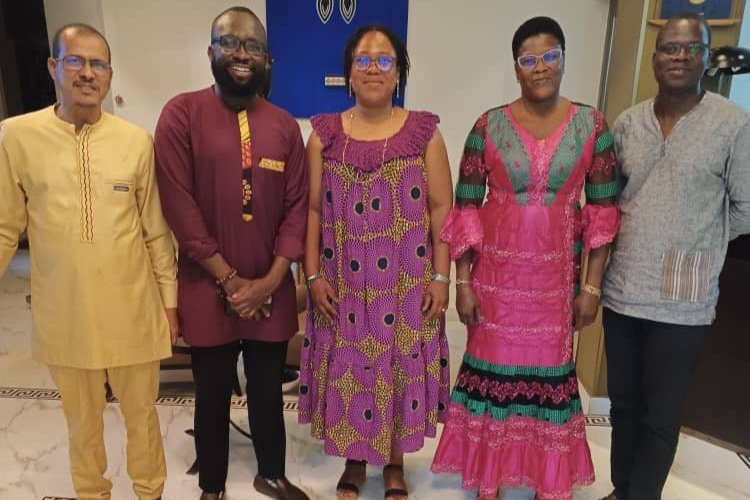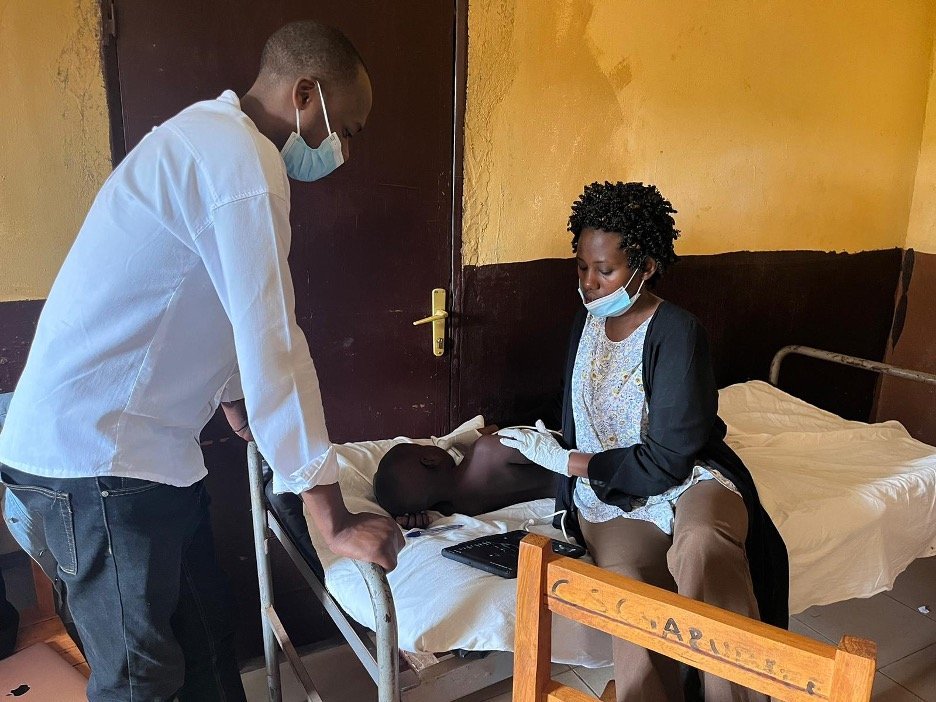Network in Action Briefs
Two NCDI Poverty Network physicians lent their expertise during a recent diabetes training workshop that the Sonia Nabeta Foundation hosted in Uganda.
The NCDI Poverty Network has published a French edition of PEN-Plus Clinical Tools and Programmatic Standards, a document that defines the diagnostic, treatment, and patient support services that compose PEN-Plus. Several francophone countries have already initiated PEN-Plus.
During the East Africa Blood Disorders Leadership Forum, held in Nairobi in late October, Eunice Owino, a Voices for PEN-Plus advocate, spoke about her experiences living with sickle cell disease.
Members of the NCDI Poverty Network’s Programs Team recently visited the PEN-Plus site in Vihiga County in western Kenya.
A recent visit to Zimbabwe by members of the NCDI Poverty Network’s Programs Team yielded encouraging updates on the country’s PEN-Plus program.
NCDI Poverty Network members joined other researchers in assessing a mental health intervention that was integrated into an existing model of chronic care in Malawi. They found that such interventions can be inexpensive if they build off an existing infrastructure, involve lay personnel, and deliver therapy in a group format.
The International Society for Pediatric and Adolescent Diabetes meeting in October shined a spotlight on patient advocates as key stakeholders in developing guidelines for type 1 diabetes care globally.
After several years of hard work, members of the Nigeria NCDI Poverty Commission have published their final Phase 1 report.
In August, CIDRZ held a four-day boot camp for young people living with type 1 diabetes in Zambia. The camp combined entertainment and sports activities with education on self-management of the condition.
The NCDI Poverty Commission of the Democratic Republic of the Congo has published its final Phase 1 report.
In early June, delegations from all eight countries in UNICEF ROSA—the Regional Office for South Asia—convened in Kathmandu for a three-day workshop on severe childhood-onset noncommunicable diseases.
In early June, delegations from all eight countries in UNICEF ROSA—the Regional Office for South Asia—convened in Kathmandu for a three-day workshop on severe childhood-onset noncommunicable diseases.
In advance of the International Conference on PEN-Plus in Africa, the NCDI Poverty Network team compiled research resources on PEN-Plus and other integrated-science healthcare delivery models.
NCDI Poverty Network researchers recently published a scoping review of models of care for people with sickle cell disease in low-income and lower-middle-income countries. Their findings confirmed the care limitations the Network has been seeking to overcome through the implementation of the PEN-Plus model.
The NCDI Poverty Network and the Centre for Infectious Disease Research in Zambia (CIDRZ) hosted a side event, “PEN-Plus Partnership: An NCDI Poverty Network Initiative in Partnership with WHO/AFRO,” on 29 November at the 3rd International Conference on Public Health in Africa, held in Lusaka, Zambia.
Over 400 people came together on 1 October to advocate for the needs of people living with sickle cell disease in Chhattisgarh State in central India.
PEN-Plus partners and stakeholders met in Addis Ababa on October 19 to discuss Ethiopia’s national scaleup of PEN-Plus. This scaleup will expand the accessibility and availability of quality noncommunicable disease care at the country’s primary hospital level.
The NCDI Poverty Commission of the Democratic Republic of the Congo convened in late October to review noncommunicable disease data as part of a priority-setting meeting.
NCDI Poverty Network team members carried the flag for PEN-Plus at the 8th World Congress of Pediatric Cardiology and Cardiac Surgery, held in Washington, DC, in August. The event marked the first time the international conference took place in the continental United States.
The NCDI Poverty Network has produced “Language Matters,” a primer intended to sensitize PEN-Plus providers to the communication nuances involved in caring for people living with severe, chronic noncommunicable diseases.
In August, the Benin NCDI Poverty Commission convened at the Ministry of Health in Haie-Vive to review NCDI data for an initial situation analysis. The goal of the three-day workshop was to establish a framework to outline the prioritization of needs and identify appropriate interventions.
In August, the NCDI Poverty Network’s Maputo Co-Secretariat launched an integration science study designed to generate information on the delivery status of high-priority clinical services for people with noncommunicable diseases at 20 facilities in Mozambique, Cameroon, and Nigeria.
The Center for Integration Science in Global Health Equity participated in an Africa CDC/African Union workshop, “Non-Communicable Diseases, Injuries, and Mental Health Surveillance: Situational Analysis and Peer Learning,” in July 2023 in Ghana.
In May, the NCDI Poverty Network, in partnership with the Rwanda Ministry of Health and with support from Team Heart, launched a national Cardiac Technical Working Group.
In May, eight PEN-Plus providers in Zimbabwe received initial training in performing and interpreting echocardiograms. Those eight providers—along with seven others—were also trained in managing heart failure.
“I run in support of the millions of people worldwide who live with type 1 diabetes,” said Dr. Apoorva Gomber, associate advocacy director of the Center for Integration Science in Global Health Equity at Brigham and Women’s Hospital. “I’ve run a marathon before and fundraised in the past. Still, this event was special because of the person who motivated my fundraising.”
Members of the Burkina Faso NCDI Poverty Commission met at the Ministry of Health offices in Ouagadougou in early May to review national NCDI data as part of an initial situation analysis.
This spring, the Ministry of Health of Rwanda offered two weeks of practical training for 24 nurses and doctors from a dozen PEN-Plus district hospitals. The training—provided in partnership with the Network, Team Heart, and Partners In Health Rwanda—focused on the skills needed to diagnose and treat heart failure in rural district hospitals.
Members of the Cameroon NCDI Poverty Commission met in Yaounde on May 10 to review the results of their situation analysis and priority-setting work on the country’s noncommunicable disease burden. Attending were leaders and representatives of both the Ministry of Health and the country office of the World Health Organization.

